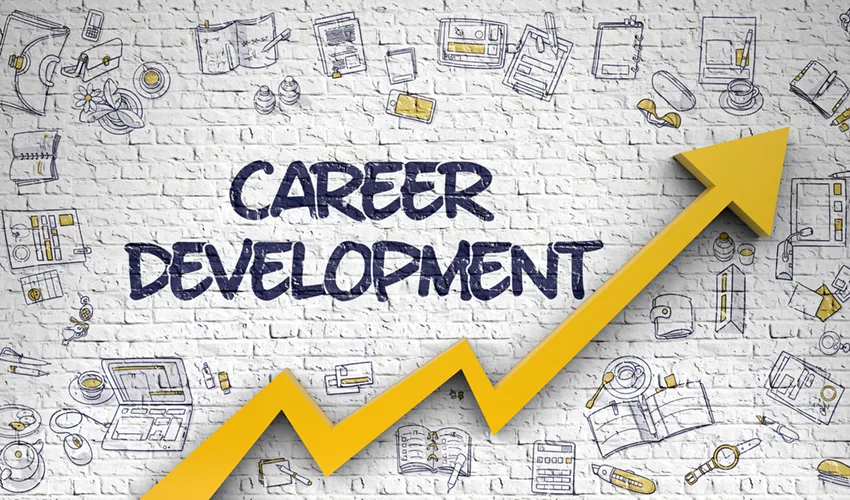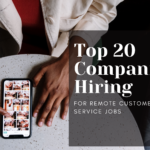Important Career Development Tips
These career development tips are a dynamic and ongoing process that requires strategic planning, continuous learning, and adaptability. Whether you’re just starting your career or seeking advancement, these essential tips will guide you toward professional growth and long-term success.
1. Set Clear Goals
Define your short-term and long-term career goals. Consider where you want to be in one year, five years, and beyond. Articulated goals provide direction and serve as a roadmap for your career journey.
Setting goals helps you establish milestones and measure your progress. When defining your objectives, consider both the professional skills you aim to acquire and the positions or projects you aspire to undertake. Break down larger goals into smaller, manageable steps, creating a clear pathway toward your vision.
2. Invest in Continuous Learning
In a rapidly evolving job market, the commitment to lifelong learning is non-negotiable. Stay relevant by acquiring new skills, attending workshops, pursuing certifications, and staying abreast of industry trends. A mindset of continuous learning positions you as an adaptable and valuable asset in any professional setting.
Make a habit of seeking out educational opportunities that align with your career goals. This may involve enrolling in online courses, attending conferences, or participating in webinars. Stay curious and explore emerging trends within your industry to remain at the forefront of developments.
3. Build a Strong Professional Network
Cultivate relationships within your industry by attending networking events, joining professional associations, and connecting with colleagues on platforms like LinkedIn. A robust professional network not only opens doors to opportunities but also provides valuable insights and mentorship.
Networking is a reciprocal process—offer assistance to others in your network and be genuinely interested in their professional journeys. Attend industry conferences and events to meet like-minded professionals, and don’t underestimate the power of informal networking over coffee or virtual meetings.
4. Seek Constructive Feedback
Embrace feedback as a tool for growth. Solicit constructive criticism from peers, mentors, and supervisors to identify areas for improvement. Act on this feedback to refine your skills and enhance your professional performance.
Create an environment where feedback is encouraged and valued. Regularly check in with colleagues and supervisors to discuss your progress and areas where you can enhance your contributions. A proactive approach to seeking feedback demonstrates your commitment to personal and professional development.
5. Develop Strong Communication Skills
Effective communication is a cornerstone of career success. Hone your written and verbal communication skills, practice active listening, and learn to convey complex ideas concisely. Clear communication fosters collaboration and positions you as an effective team member.
Consider taking communication courses or workshops to refine your skills. Practice presenting your ideas in various formats, from written reports to oral presentations. Additionally, cultivate the ability to tailor your communication style to different audiences, whether it’s colleagues, clients, or senior leadership.
6. Take on Leadership Opportunities
Seek leadership roles or projects within your organization. Stepping into leadership positions, even in a small capacity, allows you to demonstrate initiative, develop managerial skills, and showcase your ability to take on increased responsibilities.
Express your interest in leadership opportunities to supervisors and actively participate in team projects. Leadership is not solely defined by hierarchical positions; it’s about influencing positive change, motivating others, and contributing to the success of the team or organization.
7. Cultivate Adaptability
The ability to adapt to change is a vital skill in today’s dynamic work environment. Embrace new technologies, workflows, and methodologies. Showcase your adaptability by successfully navigating through challenges and demonstrating a proactive approach to change.
Stay informed about industry shifts and advancements. Attend workshops or training sessions that expose you to emerging technologies or methodologies relevant to your field. Your ability to adapt not only enhances your employability but positions you as a valuable asset in times of organizational change.
8. Build a Personal Brand
Craft a personal brand that reflects your skills, values, and professional identity. Ensure your online presence, including social media profiles, aligns with your career goals. A strong personal brand can enhance your professional reputation and attract opportunities.
Regularly update your LinkedIn profile with achievements, skills, and endorsements. Share relevant articles or insights from your industry to showcase your knowledge and engagement. Establishing a consistent and authentic personal brand reinforces your professional image.
9. Prioritize Work-Life Balance
Maintaining a healthy work-life balance is crucial for sustained career development. Set boundaries, manage stress, and prioritize self-care. A balanced lifestyle not only contributes to personal well-being but also enhances your effectiveness in the workplace.
Establish boundaries between work and personal life to prevent burnout. Schedule regular breaks and vacations to recharge. Demonstrating a commitment to work-life balance also sets a positive example for colleagues and contributes to a healthier organizational culture.
10. Stay Proactive in Career Planning
Regularly reassess your career goals and progress. Be proactive in seeking out opportunities for advancement, whether within your current organization or through external avenues. Continuously updating and adapting your career plan ensures you remain on a trajectory of growth and fulfillment.
Create a habit of periodic self-assessment. Consider where you are about your goals, what new skills or experiences you’ve gained, and what adjustments may be necessary. Stay informed about industry trends and market demands to align your career plan with evolving opportunities.
Lifelong Development with these career development tips
Career development is not a one-time event but a continuous journey of growth and adaptation. By setting clear goals, investing in learning, building a network, and embracing opportunities for leadership and personal growth, you position yourself for a fulfilling and successful career.
Remember, your professional journey is uniquely yours, and each step you take contributes to your ongoing development and ultimate success. Cultivate a mindset of curiosity, adaptability, and resilience as you navigate the twists and turns of your career path. With dedication to lifelong learning and strategic planning, you’re well-equipped to navigate the ever-changing landscape of professional success.

As an experienced career coach and writer, I’ve dedicated myself to empowering job seekers worldwide through JobSearchScore. With a passion for helping individuals across the complexities of the job market, I curate invaluable resources, offer expert advice, and provide actionable strategies to support career advancement and success.




